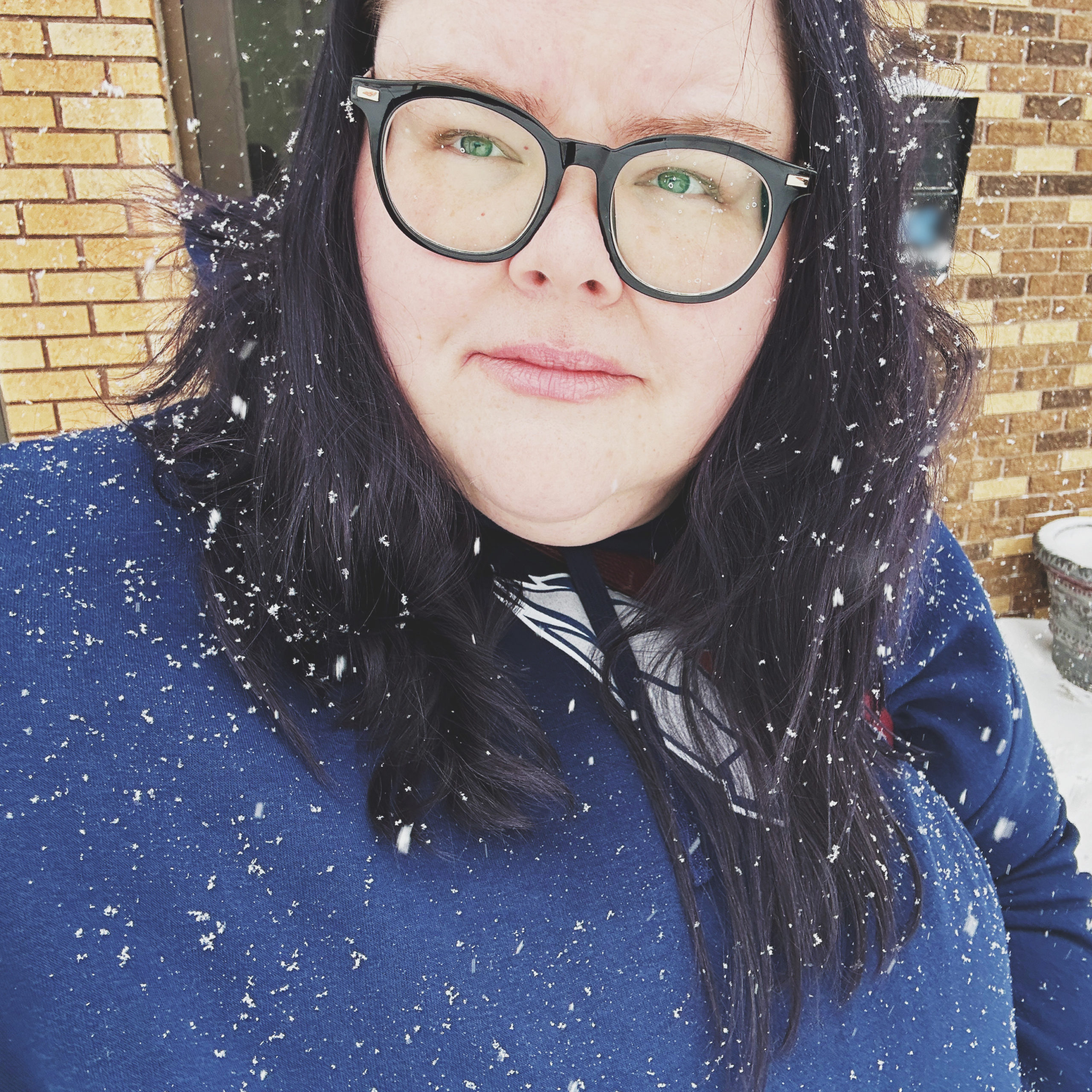|
|
Resolution culture is garbage. It is a New Year, but you do not have to be a New You. You are wonderful and you don’t have to change jack shit if you don’t want to.
But if you want to make a change, the New Year isn’t a bad time to, right? New Year, fresh start, all that stuff. You’re the same person you were last year, but with maybe a little extra motivation.
I spent 2014 making some very big and serious changes to my life partially because I got The Cancer, but also because I was well enough to have a full-time job and sort of behave like an actual Adult Human for the first time in my life, which is kind of cool.1
So, since 2015 is upon us and I did pretty damn good making changes last year, I’m taking my New Year’s Motivation and making some resolutions and sharing them with you. Fun, yeah?

1. Write More
I’m a writer! But I basically forget to write. I cram blogs in at the last second and I forget how much I actually enjoy writing them. When I write one blog, I feel urged and excited to write more of them. I should, you know, follow that instinct. I also write fiction! And, to be fair, I verbally and text-message-ually write almost every single day because I tell my girlfriend stories of all shapes and kinds, but I don’t write enough of those stories down. I have a finished novel I should edit and try to, like, sell and another that’s got a solid shape and tons of ideas scribbled down in a million places. I want to do something with them. I love words. I need to write more of them down.
Concrete Goal: Write 100 words a day! Edit/re-write my MFA book.
2. Consume More
I read and watch a pretty fair amount but I want to consume more and I want to consume things more intentionally. I like liking things and I want to find more things to like. Simple.
Concrete Goal: One new movie every two weeks, three new episodes of TV a week, 50 books this year, and more comics! Update listography and goodreads regularly, including a small review for each book I finish this year. Try to hit at least some of these diversity challenges.
3. Keep Moving and Feeding This Body
I work out frequently — sometimes six times a week! — and I have gotten much better at feeding myself in a way that satisfies my body and doesn’t make me miserable. I want to eat burgers and fries for every meal, but it turns out that my gastrointestinal system doesn’t exactly feel great when I do that? Crazy. Also, I kind of like how I feel after I work out. Gross, right?
Concrete Goal: Keep food journaling, meal planning, and going to the gym. Keep on keeping on.
I also want to be less envious and subtweet-y. I hate how often being cranky makes me think everything is dumb, but it’s kind of hard to resolve to like, be an entirely different human being than you are? And to come up with goals more concrete than “Be less of a dick.”
I am going to try to ask myself “Do you really want to say that?” before letting things loose on the world via social media. And also try to think, “That’s nice” when someone is enjoying something, even if I’m not into it. I love enthusiastic and joyful people! I don’t need to be a passive-aggressive bummer. I want to lift people up whenever possible or at the very least try harder not to drag them down, indirectly or otherwise. I am not a beacon of sunshine and I will never be, but I can strive to, you know, shut up a little more frequently when I’m in a mood.
Are you making resolutions? Are they as boring as mine? Did you resolve to become a superhero? That’d be pretty cool, to be honest.
1: I would way, way rather be sitting on my couch marathoning TV shows, but we can’t have everything.
This is a quick update! To report that I am alive and very well!1 and that instead of being wildly busy with being sick and miserable all the time, I am instead very busy with a very boring but fairly well paying full-time job! Where my fiancée is my boss! Which can get kind of weird, but is largely okay!
So, since I have been a very bad blogger and very, very absent and also, to be honest, pretty boring in general — Truly. Are you an insomniac? Let me lull you to sweet sleep with wild tales of reorganizing an entire employee file system! Let me tell you about entering hundreds of insurance claims at a time and then submitting them! Over dial-up! You’ll sleep like a baby. — I thought I’d steal a meme from the awesome Kimmie at That Girl in The Wheelchair that she posted and I saved about a million years ago!
Currently…2
Loving:
To be perfectly honest, the first answer that came into my head was sleep, but that’s boring, so I’m going with 1. Lumosity since breaking up my work day by playing games that are supposed to make me smarter is actually much more enjoyable and useful to me than taking a lunch. 2. This Smith’s Minted Rose Lip Balm because it’s like, the second lip product I’ve ever tried that I thought actually made a difference to my lips. And 3. Bath & Body Work’s Sweater Weather. I know I’ve talked about how much I love this before, but dude, I really love this scent. Soon it will be too wintery to burn any longer and I will mourn it. It is so strong (such a good ~throw) without being overpowering and the scent lingers forever without getting stale. Oh and also, my new glasses!

zennioptical.com3
Reading:
| Just Finished |
Right Now |
 |
 |
 |
 |
| FUN! |
WEIRD! |
GREAT! |
TRASHY!4 |
Watching:
 |
To be honest — and to my dismay — I honestly don’t even know what I watched on purpose last. I haven’t intentionally watched an episode of TV since the end of September and I haven’t seen a movie in theaters since we saw Guardians of the Galaxy on August 1st. Tragedy! We did however manage to get through an entire movie on Netflix last weekend! And a documentary no less! I Know That Voice was super delightful! And fascinating. And definitely worth watching if you have even a passing nostalgia or interest or enjoyment of animated movies. I’m interested in voiceover work anyway, so it was particularly interesting to me. Love seeing the faces that go to the voices. And we’re going to see Big Hero 6 tomorrow! And also I watched a bunch of eps of The Mindy Project and that is pretty fun.
|
 |
Oh, and also this. On repeat.
Listening to…
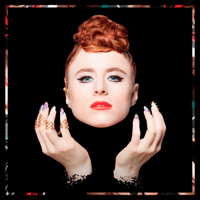  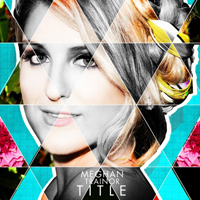
  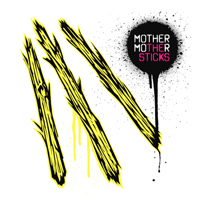
 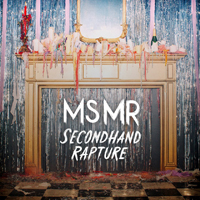 
Working on…
The answer to this question should be: my finished book that needs editing, my next book that needs writing, the book after that that’s in need of conceptualizing, my screenplay, my other screenplay, the dozens of projects I have in lists everywhere, but mostly I am working on trying to get better at adulthood. It turns out that managing time is really hard and trying to have a life while working 8-10 hour days is, like, actually difficult? Last time I had a full-time job, I was too depressed to care if I ever had any fun or leisure, so this time around it’s at least an improvement!
I am also working on a post about what I’ve been up to since my last update (The Twin Cities! Great food! Yellowstone! A new puppy!) and the Totally Top 5 series for 2K14! Oh, and I’ve also been posting the #holidayjamz I normally upload to my tumblr (who Cease-and-Desisted me to death! Thanks, Stevie Wonder!) as Youtube links to my twitter instead with #holidayjamz2k14 because the holiday season begins November 1st and if you can’t take that… well, suck it.

1: Cancer treatment is going very well! Can’t use the word remission until I have a hysterectomy, but my oncologist is very chill about waiting for surgery and very confident that we caught the stuff early. Woo!
2: What I’m currently reading/watching/listening to is always over there on the right hand side of the site. I update it fairly regularly even!
3: I am ~feeling a LARGE number of the frames from Warby Parker, but I didn’t like any of the ones in my first home try-on (at least on my face, they looked great off) so I am hesitant to take the plunge and order the ones I really want, since they don’t even have a home try-on option. Free returns and all, but nail-biting! We’ll see how the next box goes.
4: “Her [REDACTED] became a gourd of hot syrup, spilling into Dominik’s mouth.” So, yeah.
Dear Crystal,
I tried to write this like a regular post, like I was talking to my mythical invisible audience, and I tried it like nine different ways and they were all terrible, so I decided to write to you instead. You’ve been my best audience from the very beginning anyway.

It’s been six years since we first decided to try the whole dating thing! Can you believe it? Isn’t that crazy? Six years that you’ve stuck by me and continued to make this thing work even when it’s insanely hard. Six years of dumb fights interspersed with the rare important ones. Six years of laughing at each other, with each other, at everything and everyone. Six years of loving each other.

I feel like this is one of those times where I should say, “It’s not always easy, but nothing that’s worth it ever is” or one of those things, but it’d be a lie because loving you is the easiest thing I have ever done — hands down, no contest — and the most rewarding.

You are so smart and so funny and so beautiful. It’s kind of horrifying how much I like you, honestly.

I have been so, so lucky to know you for the last seven-ish years, so lucky to have gotten to be your friend and to love you intensely and romantically and grossly for most of it. Everyone that knows you is better for it. We’re all lucky to have you in our lives, someone so unbelievably loyal and generous and kind. No one who knows you really deserves to and most of us know it.

You take incredible care of me and everyone you love. You care so much and so deeply that it astonishes me. You make me laugh every single day, even on the worst days I’ve ever had. You laugh at my stupid jokes and you encourage me to be the best writer/friend/daughter/sister/girlfriend/person I can possibly be.

I love spending my days with you, even when they’re filled with dumb adult decisions and errands, even when I’m being medically probed and prodded, even when everything else is terrible — you never are. You are the best part of every day.

The last six years have been the most important of my life, I think, for a lot of different reasons, but mostly because of you. I will never stop being grateful for you, for your love, for your remarkable and indescribable presence in my life. I will never stop being thankful that I get to share that life with you, that we have a life together. Loving you is the greatest thing I’ve ever done and I’ll never stop being grateful that you let me do it.
– Ash

There are maybe three phone calls that you’d really describe as the worst in your life: the person you love most in the world has been killed or severely injured, your beloved pet has been killed or severely injured, your doctor has test results and they’re not good.
I got the third — for which I’m grateful, to be honest, the other two are worse — and it was the worst phone call of my life after the worst, most anxiety-riddled three weeks of my life.
My girlfriend took the call for me — the saint she is, appeasing my anxiety at the cost of her own, always — so I can’t recount it in perfect detail but the gist was, “You have cancer. We thought it might be a worse, more rare cancer, so we had to send all your bits and pieces away to be double-checked which is why it’s been three weeks, but no, you’ve just got the regular ol’ garden variety of endometrial cancer.”
Cancer is not a fun word, it’s not a kind word. It sounds ugly and feels wet and clunky and hiss-filled in the mouth. It effortlessly terrifies everyone who speaks English, makes them simultaneously recoil and lurch toward you in apology and pity.
I am 28 years old and I have endometrial cancer.
I have cancer. This is what I say to myself every morning upon waking and every night as I try to fall asleep. It’s a constant, gently barbing hum at the back of my throat any time my mind quiets. Sometimes, like the evening that followed the worst phone call of my life, it isn’t quiet. I say it aloud because if I don’t remind myself that it is real, I cannot cope. I fear I will forget and my life will return to normal without me realizing and it will come again and strip it away from me again, fresh and brutal.
I have cancer.
Sometimes it comes out like a cough, sudden and jarring, scratching at my throat. My eyes water and sting, but it passes quickly — a swallow of water down the wrong pipe — and everything’s okay again.
The night I learned he results of my labs, I looked in the bathroom mirror and fluffed my hair and stroked the skin under my eyes because I still haven’t found an eye cream I want to buy. (I’m almost 30 and I live in a place where the temperature is regularly 20 below, hydration is a priority.) I looked into a face that has cleared up tremendously in the last few weeks because of a drastic change in diet and exercise, my color finally returning to me after months of severe blood loss that necessitated two separate blood transfusions and a total of nine pints of strange blood commingling with my own. I looked in the mirror and I smiled and I said, “I have cancer and I have never looked more beautiful.”
My narcissism truly knows no bounds.
“I am reading Gone Girl on my Kindle and I have cancer.”
“I am shopping for a desk lamp at Target while having cancer.”
“I have cancer and I am moisturizing my face.” “I have cancer and I’m deep conditioning my hair.” “I’m cleaning the bathroom and I have cancer.”
It’s a refrain to center my reality. For now, this thing inside of me, this vicious brutality of mutation is part of me and I must learn it, acknowledge it, accept it.
Cancer will — hopefully, prayerfully, “Please, oh please”-fully — not always be my reality, the center of my every breath, but for now it is.
I have cancer.
I have cancer and with luck, it’ll all be fine.

I am Ash, I have cancer, and I’m doing okay, really.
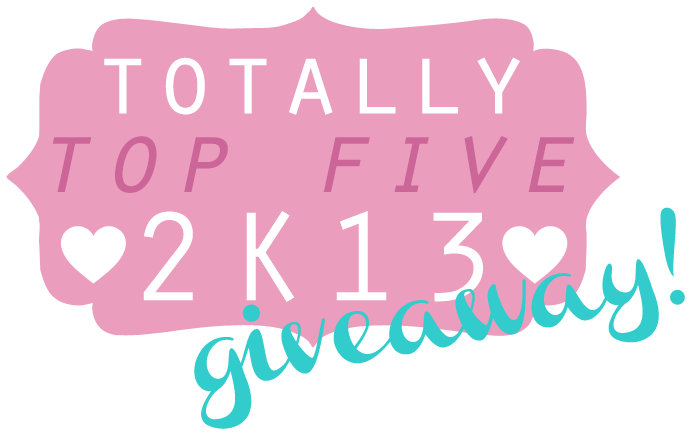
Now that the last of 2K13’s Totally Top Fives have been posted, it’s time to give something away to you fine, kind souls. You know, the ones who voluntarily read all this garbage! Bless you all.
This year’s prizes — that’s right, that s is not a mistake! — are three Amazon.com gift cards! Partly because I don’t want to foist my taste on you — although at this point, you really ought to just accept it — and partly because I want to get you started on your own Totally Top Five 2K14! It’s never too early in the year to love something.
So, if you look down there ↓ you’ll see a handly little Rafflecopter giveaway widget where you can enter to win one of the three gift cards in just a couple super simple steps! Most of which aren’t even mandatory! How exciting for all of us!
HAPPY NEW YEAR!
LET’S HAVE A GIVEAWAY!
a Rafflecopter giveaway
The giveaway closes at midnight January 8th, 2014. I will contact the winner within 12 hours and if they do not respond within 24 hours of my email, I’ll select a new winner. Easy peasy!
Good luck! Thanks for reading and commenting and being awesome. I know there’s not a whole lot of you but you all sure do mean the world to me. ♥
ETA: Winners have been emailed, announced, and awarded! Congrats and thanks again for entering and reading and continuing to be awesome!
TOTALLY TOP FIVE 2K13: JAMZ | MOVIES | ALBUMS | TV | BOOKS | STUFF
|
|




























